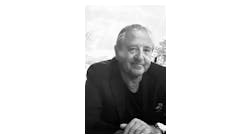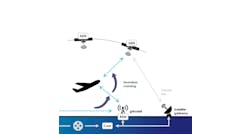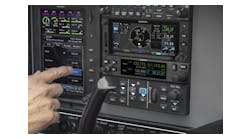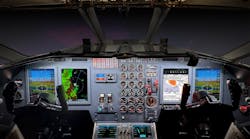Aug. 02--Despite advances in frames, propellers, electronics and safety systems, one critical element of general aviation aircraft has hardly changed in 50 years: the engine.
Single- and twin-engine planes that carry four to eight passengers still use air-cooled gasoline engines that have high fuel consumption relative to their power and antiquated fuel induction and ignition technology, said Steven M. Weinzierl, co-founder and chief technology officer at Engineered Propulsion Systems Inc., or EPS, in New Richmond.
"These aircraft engines today have their heritage in the 1950s, and the technology hasn't really changed," Weinzierl said. "We said it's time to upgrade that technology."
After years of development, EPS will put its upgrade on display when it test flies its new engine in the Mojave Desert this fall, the company said at the EAA AirVenture this week. Well-known aviator Dick Rutan -- he piloted the first-ever, nonstop flight around the world without re-fueling in 1986 -- will steer the test flight.
EPS in June performed a successful test at the summit of Mount Evans, atop the highest paved road in North America, where the engine started from a dead stop at nearly 15,000 feet, Weinzierl said.
He says the new engine represents a technological leap. It will be the first lightweight, high-performance, water-cooled, diesel engine for general aviation. And it is equal in weight to any gasoline engine it would replace, Weinzierl added.
The company hopes to bring the engine to market in 2016.
EPS has 10 employees in New Richmond and two in Germany, Weinzierl said. The company has raised $5.7 million in two funding rounds, and is trying to raise another $11 million, said Mark Tyler, an EPS investor and director, and founder and CEO of OEM Fabricators Inc. in Woodville.
There are a number of companies -- driven by the rising price for "avgas" used for airplanes, its scarcity in some parts of the world, and environmental concerns -- that are developing diesel engines for general aviation. Racine-based DeltaHawk Engines Inc., for example, is testing a diesel engine in a Cirrus SR20 plane.
Weinzierl and EPS co-founder and president Michael Fuchs were engine design consultants who had worked on Polaris' Victory motorcycle, Arctic Cat All-Terrain Vehicles and other projects. They decided in 2006 to strike out on their own and apply their expertise to creating an alternative to gasoline engines.
"The problem of removing lead in aviation has been around for a long time," said Paul Johnston, chief engineer at Cirrus Aircraft, a Duluth-based aircraft manufacturer that is owned by China Aviation Industry General Aircraft. "It's a very, very tricky issue."
Weinzierl and Fuchs say their solution could help make American companies such as Beechcraft, Cessna, Cirrus, Piper and Robinson Helicopter more globally competitive.
"We have aircraft companies trying to expand their markets into Asia, Africa and South America, and they can't sell a global product because they don't have an engine that uses a global fuel," Weinzierl said.
The EPS engine uses internationally available jet fuel, rather than "avgas," which is actually heavily leaded. That makes the engine more environmentally friendly and better suited for use outside the U.S., where avgas is scarce, Tyler said.
"Jet fuel is around every large airport in the world; if you have an engine that can use jet fuel, your market expands beyond the U.S.," said Johnston, of Cirrus.
Weinzierl and Fuchs say they took an unusual step in their industry as they were building the engine.
"We actually went and visited the customers," Weinzierl said.
That has helped drive customer response, and EPS has provisional purchase orders for more than 1,000 engines in its second year of production at a price of $100,000 each, Weinzierl said. The new engine should also be attractive for use in military drones, Tyler said.
"The technology in this engine is going to make the other diesel engines obsolete," he added. "Others are trying, but I really am convinced EPS has the right mixture of people and technology and experience to make it happen."
Copyright 2013 - Milwaukee Journal Sentinel



